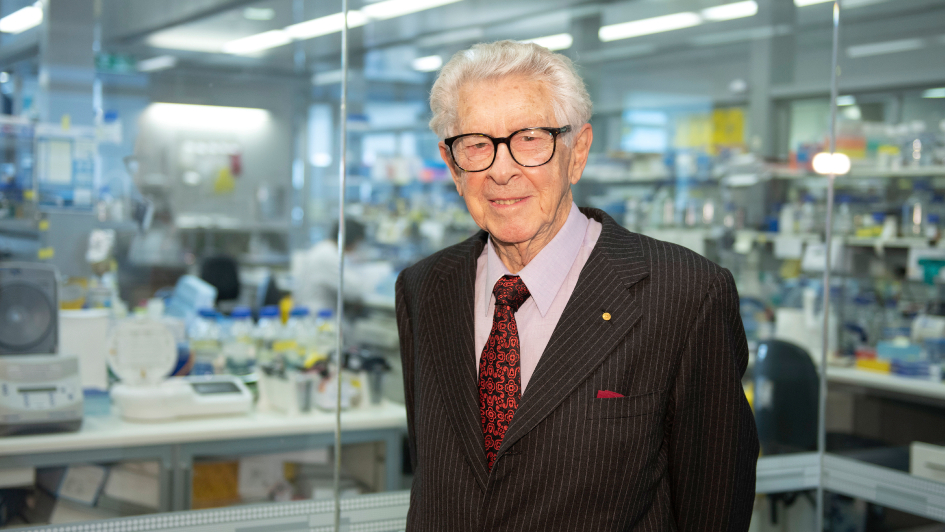
Professor Jacques Miller. Image credit: Walter and Eliza Hall Institute of Medical Research, 2019.
Professor Jacques Miller has been jointly awarded this year’s Albert Lasker Basic Medical Research Award, for his pivotal role in discoveries that laid the foundation for much of the field of modern immunology.
The award recognises the importance of his discovery of the role of two types of white blood cell, called B- and T-cells, involved in the adaptive immune system.
T-cells and B-cells are key components in the immune system’s ability to recognise specific pathogens and cancer cells, and Professor Miller’s discovery was underpinned by his work at The Institute of Cancer Research, London, where he identified the essential function of the thymus during his PhD research in the early 1960s.
The second-biggest prize in biomedical research
Professor Miller, who now holds an emeritus professor position at The Walter and Eliza Hall Institute of Medical Research in Melbourne Australia, will share the prize with Professor Max D. Cooper (Emory University School of Medicine, Atlanta, USA), an American immunologist who independently discovered the functions of these two types of white blood cells.
Sometimes known as 'America's Nobel', the Albert Lasker Basic Medical Research Award is the second-biggest award in biomedicine. Professor Miller and Professor Cooper will share a prize of $250,000.
On announcing the award, the Lasker foundation praised their monumental achievement, which 'provided the organising principle of the adaptive immune system and launched the course of modern immunology'.
B and T cells—the organising principle of the adaptive immune system
When Miller started his research career in the 1960s, scientists had uncovered some features of the adaptive immune system, which protects our bodies from microbial invaders as well as performing other important roles.
Professor Miller's interest in cells of the immune system began during his time at the ICR while researching lymphocytic leukaemia for his PhD.
Lymphocytic leukaemia begins in the thymus, an organ in the chest that was at the time thought to be a leftover from our evolutionary history. Its role in the body was not known.
Yet when Professor Miller studied young mice whose thymus was removed on the first day of life, he found that they had a higher incidence of death from infection compared to their littermates, and that they died with very few lymphocytes – white blood cells that help the immune system respond to new threats.
He also found that removing the thymus early in life reduced the immunological rejection of skin grafted from a different strain of mouse. Thus in this seminal early work, Professor Miller demonstrated that the thymus is important for immunological function and lymphocyte numbers.
From fundamental research to life-saving cancer treatments
After his PhD Professor Miller moved to the National Institutes of Health in the USA, and demonstrated that lymphocytes could be divided into distinct lineages, now known as T and B cells. He then took up a post at The Walter and Eliza Hall Institute of Medical Research.
He also showed that the thymus is the organ where T-cells mature, making it vital to a working immune system.
T cells are one of the body's lines of defence against infection and cancer, as they can recognise the difference between healthy cells and infected or cancerous cells.
They are also vital to immunotherapies, which help to expose cancer cells to the immune system. Examples of immunotherapy treatments that have benefited from Professor Miller’s discoveries include nivolumab, pembrolizumab, and ipilimumab.
Pioneering achievements
The ICR's Chief Executive, Professor Paul Workman, said: "I want to extend my warmest congratulations to Professor Miller on receiving the hugely prestigious Albert Lasker Award recognising his important work, which forms the bedrock of modern immunology treatment.
“I'm extremely proud that Professor Miller’s research at the ICR uncovered the fundamental role of the thymus in immunity. His findings proved to be the basis for modern immunotherapies, known as T-cell checkpoint inhibitors, which are helping to extend and improve the lives of cancer patients around the world.”
